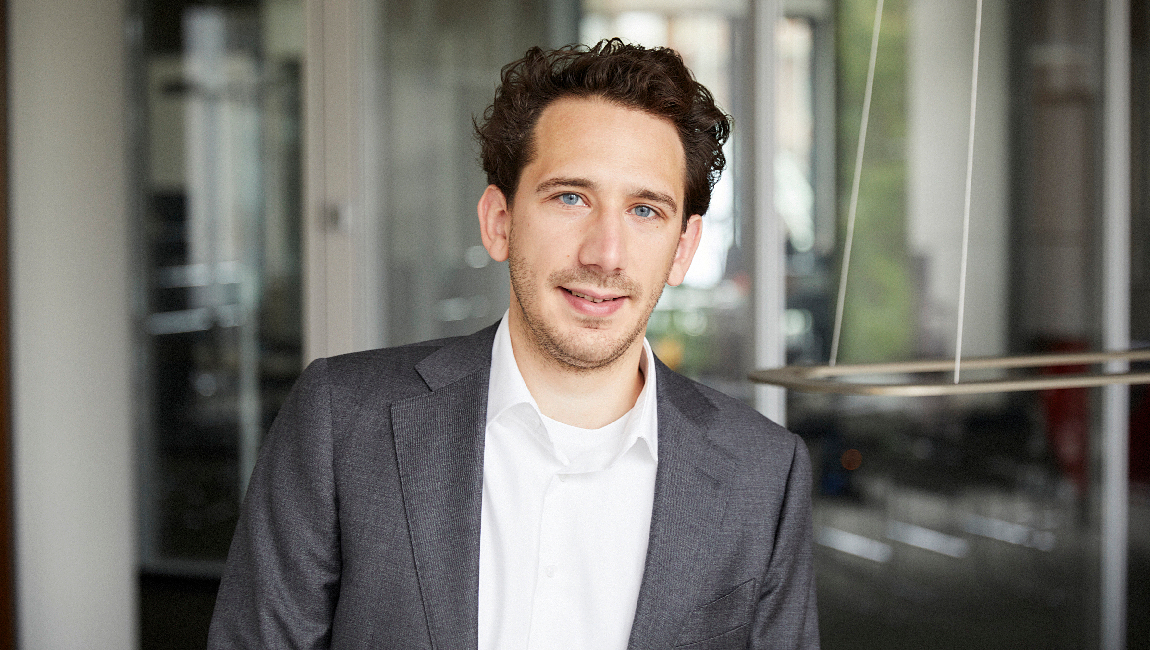EXCLUSION OF A LIMITED PARTNER FOR GOOD CAUSE
If there is good cause in the person of a limited partner that makes the continuation of the partnership relationship unreasonable for the other partners, the other partners may exclude this partner from the partnership. The resolution on the exclusion provided for in the articles of association does not have to be passed immediately. The judgment of the Higher Regional Court of Hamm (judgment of 1.3.2023 – 8 U 48/22) deals in an exemplary manner with the question of the conditions under which waiting by the shareholders entitled to exclusion is justified and does not refute the assumption of the existence of good cause or unreasonableness.
I. Introduction and background
In addition to various forms of voluntary withdrawal of a partner from a partnership, it is also possible for a partner to be (involuntarily) excluded from a partnership by the other partners under certain conditions. As the exclusion of a partner from a partnership represents a considerable encroachment on membership rights and their core area, the law provides for special regulations to be observed.
According to Section 134 sentence 1 HGB (or Section 140 para. 1 sentence 1 HGB old version before the MoPeG), the prerequisite for exclusion is that good cause has arisen in the person of the shareholder to be excluded. In this case, his exclusion from the company can be pronounced by a court decision at the request of the other shareholders, unless otherwise agreed in the articles of association.
Even before the modernization of partnership law by the MoPeG, it was generally accepted that the articles of association could provide for deviating agreements. This now follows directly from section 134 sentence 1 HGB at the end. In particular, it is permissible – as is regularly the case in practice – to completely waive the right to take legal action (court decision) and to stipulate that the exclusion takes place by means of a shareholder resolution with the exclusion of voting rights of the shareholder concerned. Finally, the shareholder to be excluded must be heard before the resolution on his exclusion is passed.
II. Existence of an important reason
Pursuant to Section 134 sentence 2 HGB, good cause exists in particular if the shareholder has intentionally or grossly negligently breached a material obligation incumbent upon it under the articles of association or if it becomes impossible for it to fulfill such an obligation. This also corresponds to the wording of sections 140 para. 1 sentence 1, 133 para. 2 HGB (old version) prior to the MoPeG. According to the established case law of the BGH (judgment of 17.12.1959 – II ZR 32/59), good cause is always given if there are circumstances in the person of the shareholder to be excluded that make it unreasonable for the other shareholders to continue the company relationship when all the relevant facts are weighed up.
The good cause must therefore lie in the person of the shareholder to be excluded and be of significance for the company relationship. The exclusion does not have the character of a sanction, but is rather intended to ensure that the other shareholders can continue the company (without danger). This requires a comprehensive weighing of interests of all circumstances of the individual case. As part of this balancing of interests, any misconduct, any damages and their extent, the degree of any fault, the position under company law, etc. must be taken into account. It should be noted that exclusion as a last resort can only be considered if the unreasonableness cannot be eliminated by milder means.
III. Decision of the OLG Hamm
The decision of the Higher Regional Court of Hamm (judgment of 1.3.2023 – 8 U 48/22) was essentially based on the following facts. The parties disputed, among other things, the validity of a shareholder resolution on the exclusion of the plaintiff from a GmbH & Co KG (“A KG”). The plaintiff was a limited partner of A KG as well as a managing partner of B GmbH, which had close economic ties with A KG. The action was brought against the other limited partners and the general partner of A KG as defendants. The articles of association of A KG contained a clause according to which “a partner can be excluded from the company by the other partners with the majority of all their votes if there is an important reason in his person within the meaning of Sections 140, 133 HGB (old version)”. At a shareholders’ meeting of A KG on June 15, 2020, the plaintiff was excluded by shareholders’ resolution with the votes of the defendants. Breaches of duty committed by the plaintiff from February 11, 2020 onwards were cited as good cause. During this period, the plaintiff took various measures due to a dispute among the shareholders, as a result of which the business activities of A KG were significantly impaired or hindered. For example, as a result of an unfounded suspicion, he banned employees of A KG from jointly used premises of B GmbH, blocked access to jointly used servers of B GmbH, requested a defendant limited partner to terminate his existing employment relationship with B GmbH, terminated it without cause and put A KG under economic pressure due to its strained liquidity situation by requesting payment of its credit balances on the loan accounts.
In the opinion of the OLG Hamm, the resolution to exclude the plaintiff is effective. Through his conduct, the plaintiff violated his duties of loyalty under company law to a considerable extent and thereby shook the relationship of trust between the shareholders of A KG. This made it unreasonable for the defendants to continue the partnership relationship with the plaintiff, so that there was good cause. In principle, the circumstances giving rise to the good cause should not have occurred long ago when the resolution to exclude the plaintiff was passed, as a longer waiting period on the part of the other shareholders could refute the assumption of unreasonableness.
However, according to the case law of the BGH (judgment of 14.6.1999 – II ZR 193/98), the shareholders entitled to exclude a shareholder may have a legitimate interest in not immediately exercising the right to exclude the shareholder concerned. In principle, it is contrary to general life experience to maintain a corporate relationship based on trusting cooperation for a longer period of time (“several months”) despite its considerable disruption, so that a long-lasting continuation of the corporate relationship indicates that the circumstance justifying exclusion has become less important over time and that the unreasonableness justifying an important reason no longer exists. In specific individual cases, however, there may be a recognizable company interest that (initially) justifies waiting to exclude the shareholder in question without the good cause or unreasonableness ceasing to exist. In this case, the plaintiff’s breaches of duty extended over a longer period of time and their unreasonableness resulted, among other things, from their overall view, so that the period between the end of the plaintiff’s breaches of duty and the resolution on his exclusion is decisive for the duration of the waiting period. In addition, the defendants convincingly argued that, on the advice of their legal counsel, they initially wanted to terminate the business relationships between A KG and B GmbH and await the labour court proceedings between B GmbH and the defendant in question in order not to further complicate or jeopardize the economic realignment of A KG. Subsequently, the exclusion of the plaintiff took place immediately.
IV. Outlook and consequences for practice
The decision of the OLG Hamm emphasizes that there is no rigid deadline for the exclusion of a shareholder. While in employment law, for example, there is a two-week period (from the time the circumstances come to light) for the declaration of termination without notice for good cause (Section 626 (2) BGB), in partnership law the shareholders who are entitled to exclude a shareholder are entitled to a “reasonable period” after they become aware of a reason for exclusion, even without special considerations, in order to weigh up their interests and decide whether to exercise the right of exclusion.
Furthermore, the principle applies that circumstances justifying the exclusion of a shareholder must not have occurred a long time ago when the resolution on the exclusion of a shareholder is passed, as a longer wait may give rise to the presumption that the circumstance justifying exclusion has become less significant over time and that it is therefore no longer unreasonable to continue the shareholder relationship. In individual cases, however, there may be legitimate interests of the company that justify waiting to exclude the shareholder in question without this giving rise to the presumption that it is no longer unreasonable.
In practice, care should therefore be taken to ensure that the exclusion of a shareholder should take place shortly after the reason for exclusion becomes known, i.e. within one or a few months, if there are no legitimate company interests in waiting. Otherwise, there is a risk that the exclusion will not stand up to judicial review. If, on the other hand, there are legitimate social interests, a resolution on the exclusion of the shareholder in question can only be passed once these no longer stand in the way of the exclusion.
We are here for you
For more information please contact
Dr. Arne Hansen, LL.M. (Wellington)
honert hamburg
Partner, Attorney-at-Law, Lawyer for Commercial and Corporate Law
M&A, Venture Capital, Litigation, Corporate, Business Law, Employment
| phone | +49 (40) 380 37 57 0 |
| [email protected] |
Sebastian Schleehauf
honert hamburg
Attorney-at-Law
Corporate, Business Law, M&A, Venture Capital
| phone | +49 (40) 380 37 57 0 |
| [email protected] |
Dr. Jörg Schwichtenberg
honert munich
Partner, Attorney-at-Law
Corporate, Business Law, Compliance, Capital Markets, Litigation
| phone | +49 (89) 388 381 0 |
| [email protected] |



